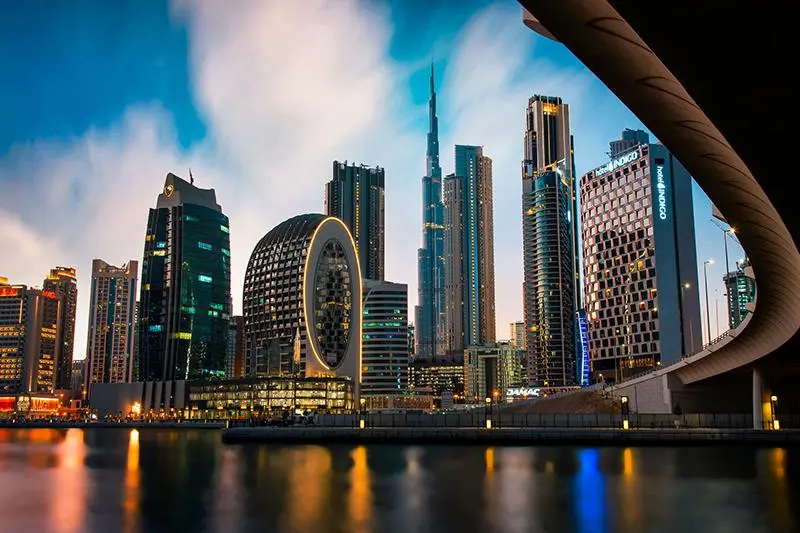PHOTO
DUBAI - The Global Manufacturing and Industrialisation Summit (GMIS) today signed four Memoranda of Understandings (MoUs) with international knowledge partners, putting international collaboration and sustainability at the heart of the global manufacturing industry.
Under the MoUs, leading manufacturing associations from around the world will join forces with the Global Manufacturing and Industrialisation Summit to leverage their combined knowledge, insights and resources to promote inclusive and sustainable industrial development.
The partnerships were signed with the Confederation of Employers and Industries of Spain (CEOE), Confederation of Zimbabwe Industries (CZI), Manufacturing Association of Israel (MAI) and The National Industry Confederation of Brazil (CNI) to promote collaboration efforts through workshops, webinars and bilateral exchanges, and come at a time when disruptive 4IR technologies and new business models are continuously evolving and changing the face of industrial trade and production.
The MoUs, signed on the side lines of the first day of #GMIS2021, affirm the critical role that GMIS has played as a collaborative international platform for promoting industrial growth, advanced technology adoption and sustainable economic diversification. By spotlighting the latest developments in Big Data, digitalisation and artificial intelligence (AI), GMIS is convening the world’s major industrial players to usher in a new, sustainable era in manufacturing and industrialisation.
Commenting on the agreements, Robson Braga de Andrade, President of the National Industry Confederation of Brazil (CNI) said "Our joint international knowledge-sharing programmes have been incredibly successful in facilitating strategic paths for the implementation of Fourth Industrial Revolution innovations for the manufacturing sector and in identifying key stakeholders to develop sustainable operations. We are therefore delighted to be renewing our Memorandum of Understanding with the Global Manufacturing and Industrialisation Summit.
Kurai Matsheza, President of the Confederation of Zimbabwe Industries (CZI) said: "Once again, our partnership with GMIS has provided a unique source of case studies and collaboration opportunities for Zimbabwe. We aim to engage in further pursuits of innovative technologies by crowdsourcing ideas and best practices together. Manufacturing represents a critical force for the advancement of economic prosperity and cannot progress by operating in isolation." Other senior industry leaders in attendance for the ceremonial signing with GMIS included Dr. Ron Tomer, President of Manufacturing Association of Israel (MAI); Marta Blanco, President of the Confederation of Employers and Industries of Spain (CEOE).
The MoUs reflect the ongoing impact of the platform that has been created in recent years by the Global Manufacturing and Industrialisation Summit, highlighting the Summit’s commitment to delivering long-term strategic results.
Commenting on the partnerships, Badr Al Olama, Head of the Organising Committee of the Global Manufacturing and Industrialisation, said: "We are thrilled to partner with global manufacturing associations, working together towards building smarter, and more resilient manufacturing capabilities by enabling local industry leaders to share best practices and deliver cutting-edge innovative solutions.
"Coming together furthers individual capabilities and strengthens global cooperation. These partnerships play a very important role within our ecosystem and alongside our annual Global Manufacturing and Industrialisation Summit."
Under the theme – ‘Rewiring Societies: Repurposing Digitalisation for Prosperity,’ the #GMIS2021 Summit took place on November 22-23 and gathered a cross-section of close to 125 global leaders from the public and private sector. The first day of the Summit featured a series of keynote addresses and panel sessions involving Heads of State, Ministers, and thought leaders from some of the world’s leading organisations. Discussions focused on global collaboration with critical topics including Society 5.0, the digitalisation of the power sector and ways to best interpret data intelligence, but also the potential for digital transformation to serve economic prosperity.
Discussions on the second day of the Summit focussed on the major issues facing the manufacturing sector and explored how twin (green and digital) transition rallies innovation and sustainability together with Industry 4.0 technologies. UAE senior industry leaders discussed the country’s industrial strategy to boost industrial productivity through Operation 300bn, the National Strategy for Industry and Advanced Technology. Further insights were shared on the future of governance and global prosperity and the need to adapt healthy and safety measures in confrontation to cyber-physical environments.
There was also a series of working group sessions which involved high-level representatives from industry and world-renowned organisations to discuss the development of a number of new initiatives the Summit plans to launch in the near future.
© Copyright Emirates News Agency (WAM) 2021.





















